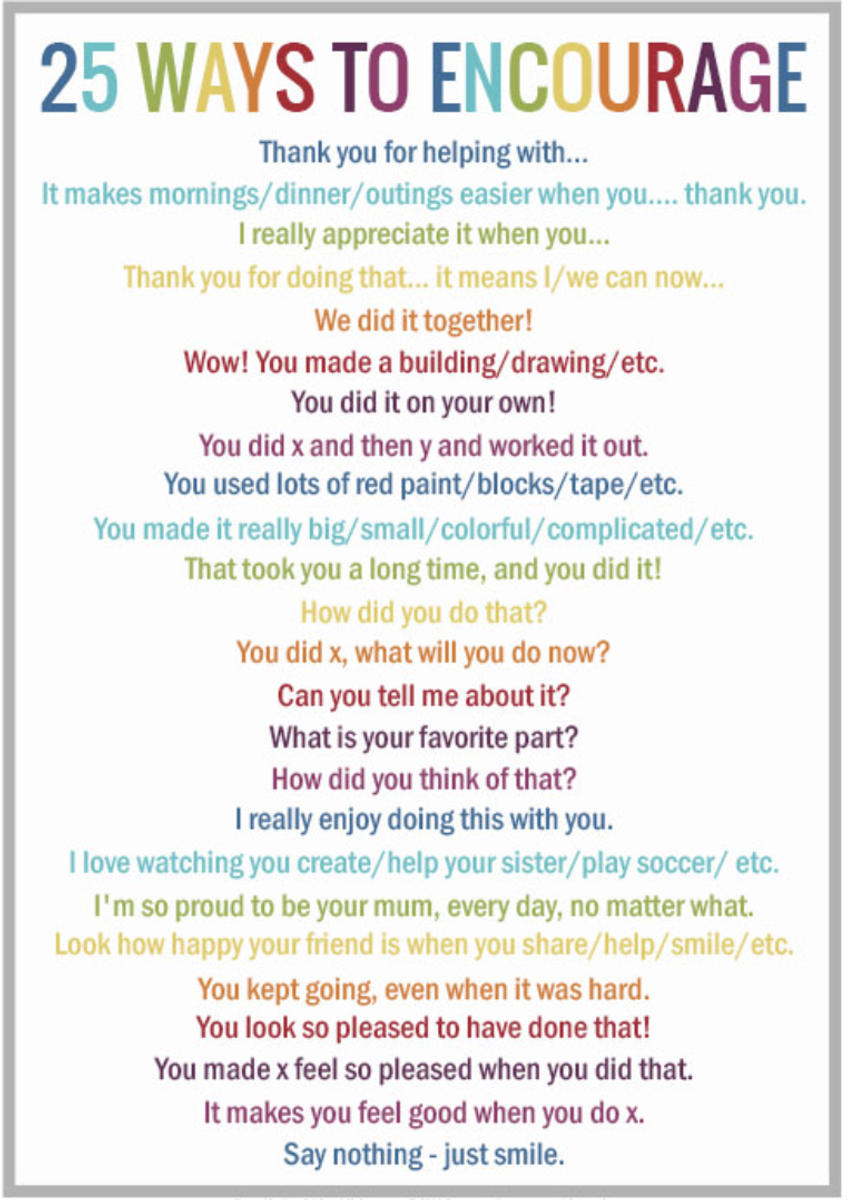Wellbeing

Developing Self-Esteem: The Difference Between Praise and Encouragement
By Tal Silverstein, Galilee School Counsellor
As parents and carers, it's important for us to show appreciation for our children's actions, behaviours, achievements and expressions of love. We often want to empower our children by using words of praise like, “ Good girl/boy!” "Good job!" "Well done!" "You're amazing!" or “ This is awesome!” While these expressions are meant to uplift, they often focus on our judgment and the final result. And unintentionally, they may send a message that our child’s value is tied to success or approval from others.
For example:
- “You’re amazing!” can imply “You’re not amazing when you struggle.”
- “Good job!” may subtly mean “Bad job if you didn’t succeed.”
Praise, especially when centred on outcomes, gives children a kind of emotional “grade.” This can lead them to chase approval and fear failure, rather than focus on growth. This judgmental focus on the result doesn't consider the child's experience or developmental process and doesn't contribute to building self esteem.
True self-esteem, however, doesn’t come from perfection or praise. It comes from seeing themselves grow through effort, overcoming obstacles and realising they have the inner resources to keep going. That’s where encouragement comes in.
In contrast, words of encouragement focus on the process, describing the effort and work itself. Encouragement reflects the child's abilities and greatly enhances their sense of self-efficacy and self-confidence. Encouragement phrases typically start with "you" and describe the process in an empowering way. For example:
- "You put in a lot of effort."
- "You worked very hard."
- "You trained all year and made great progress."
- "It was hard for you, but you didn't stop trying."
These phrases focus on what the child can control, their attitude, effort and choices. Encouraging words convey messages that foster intrinsic motivation, self-control and the desire to master a skill, qualities that are not dependent on others’ opinions. They help children build a positive self-image from within, rather than relying on external validation.
Here are some additional examples of effective encouragement:
- "You concentrated on the task and gave it your all."
- "You painted with great pleasure and took your time to create."
- "You listened to yourself and made the right decision for you."
- "You noticed you were uncomfortable and chose to stay away."
- "You found it challenging, yet you didn't stop."
Children don’t gain confidence from getting it right the first time. They gain it by seeing themselves improve over time. When we encourage them to keep trying, to learn from mistakes and to stay engaged even when it's hard, we’re supporting their journey toward mastery, not just short-term success. Mastery takes time. By encouraging repeated effort, we help children:
- Build resilience in the face of challenge
- Develop intrinsic motivation
- Learn to value progress over perfection
- Trust their ability to grow and succeed
In conclusion, while praise focuses on measurement and results, increasing the use of encouraging phrases within the family can help children enjoy their growth and development process. They will better understand their abilities and develop stronger self-esteem.

